Current research in biology demands an increasingly quantitative focus where system-wide approaches and theoretical modeling play a central role. Modern techniques allow the collection of vast amounts of data, yet analysing the underlying mechanisms and rules from this data remains challenging. This is further complicated by the fact that many of these processes are inherently stochastic and rarely accompanied by exact functional descriptions. Faced with these challenges, we still need to find ways to draw accurate conclusions and gain higher-level understanding.
The aim of this conference is to highlight recent advances and applications of quantitative research. In addition, we hope this symposium will inspire young researchers to see the implications of their work beyond a single process or correlation. This may help us get closer to predicting complex biological behavior by well-established principles comparable to those found in fundamental physics. At the core of this idea stands an interdisciplinary approach, which is also an integral part of the research here at EMBL. Finally, the symposium will consider quantification across multiple scales of biology, ranging from the sub-cellular to the multi-cellular level.
We hope that an increased focus on quantitative and interdisciplinary approaches on a systems-level will help us reveal underlying mechanistic principles in biology.
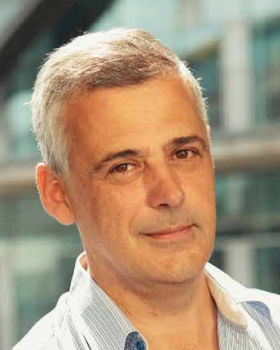
The EMBO Keynote Lecture
Dr. Luis Serrano - (website)
Friday 18th - 09:00-10:00
Centre for Genome Regulation - Spain
Dr Serrano graduated with a Bachelor's of Biological Sciences (1981) and Master’s in Science (1982) from the Complutense University of Madrid. He then completed a PhD in Biochemistry in the Universidad Autónoma de Madrid (1985) and in Cell Biology at the Centro de Biología Molecular (CSIC-UAM) in 1987 and the University of Cambridge in 1991. Subsequently he spent 4 years in the laboratory of Professor A.R. Fehrs, at the Medical Research Council (MRC), UK, where he focused his research on protein folding. Currently Dr Serrano is the director of Centro de Regulación Genómica (CRG) and a member of the Spanish Society for Biochemistry and Molecular Biology (SEBBM), member of the European Molecular Biology Organisation (EMBO) and member of the Royal Spanish Academy of Sciences (Spain).
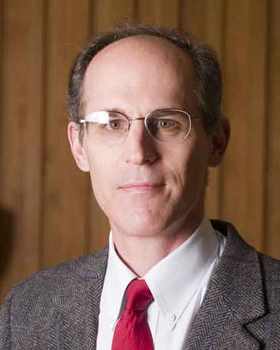
Prof. Raymond E. Goldstein - (website)
Saturday 19th - 09:00-10:00
Department of Applied Mathematics and Theoretical Physics, University of Cambridge - UK
Professor Goldstein graduated from the Massachusetts Institute of Technology (MIT) with a double-major Bachelor of Science degrees in Physics and Chemistry in 1983. He continued his education at Cornell University, where he was awarded a Master of Science degree in Physics in 1986, followed by a PhD in 1988 for research on phase transitions and critical phenomena supervised by Neil Ashcroft. Prof Goldstein is a Fellow of the American Physical Society, the Institute of Physics, the Institute of Mathematics and its Applications, and the Royal Society. He is currently a Schlumberger Professor of Complex Physical Systems at University of Cambridge, focusing his research on non-equilibrium biological systems.
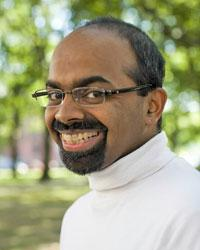
Prof. L. Mahadevan - (website)
Thursday 17th - 09:30-10:30
Harvard University - USA
Professor Mahadevan graduated from the Indian Institute of Technology, Madras, and then received an M.S from the University of Texas at Austin, and an M.S. and Ph.D. from Stanford University in 1995. He started his independent career on the faculty at the Massachusetts Institute of Technology (MIT) in 1996.
Professor Lakshminarayanan Mahadevan is currently the Lola England de Valpine Professor of Applied Mathematics, Organismic and Evolutionary Biology and Physics at Harvard University. His work centers on using mathematics to understand the organization of matter in space and time.
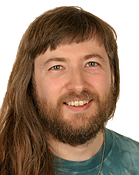
Dr. Jean-Karim Hériché
Thursday 17th - 14:30-15:15
EMBL Heidelberg - Germany
Jean-Karim Hériché was trained as an engineer and obtained a PhD in biology from Université Joseph Fourier in Grenoble, France for work carried out at the French Atomic Energy Commission. He did post-doctoral research on cell cycle control during Drosophila development in Patrick O'Farrell's lab at the University of California, San Francisco and then moved to Richard Durbin's group at the Wellcome Trust Sanger Institute where he implemented bioinformatics tools and analysis methods for the MitoCheck project. He is now in the Cell Biology and Biophysics Unit at EMBL-Heidelberg where he works on image-based systems biology and bioimage informatics projects.
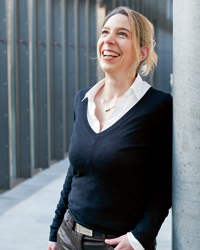
Prof. Dagmar Iber - (website)
Saturday 19th - 10:00-10:45
Department of Biosystems Science and Engineering, ETH Zürich - Switzerland
Dagmar Iber studied mathematics and biochemistry in Regensburg, Cambridge and Oxford. She holds Master degrees and PhDs in both disciplines. After three years as a Junior Research Fellow in St John’s College, Oxford Dagmar became a lecturer in Applied Mathematics at Imperial College London. Dagmar has joined ETH Zuerich in 2008 after returning from an investment bank where she worked as an oil option trader for one year. Prof Iber’s group develops data-based, predictive models to understand the spatio-temporal dynamics of signaling networks. Her recent work focuses on mouse organogenesis and patterning systems to further understand the control of organ growth and robustness of signalling mechanisms in response to evolutionary changes.
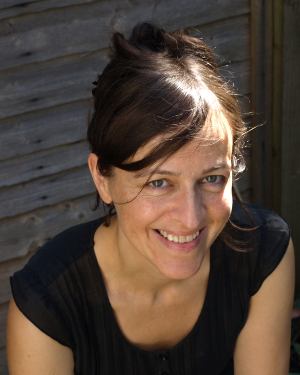
Dr. Irene Miguel-Aliaga - (website)
Saturday 19th - 11:15-12:00
Imperial College London - UK
Irene Miguel-Aliaga is Professor of Genetics and Physiology at Imperial College London and Programme Leader at the London MRC Clinical Sciences Centre. She obtained her DPhil in Genetics from the University of Oxford, and explored how neurons acquire their identity during postdoctoral work at Harvard, Linkoping University and NIMR (now Crick Institute), London. First at Cambridge and now in London, her research group is investigating cellular and organ plasticity and exploring the mechanisms by which organs sense change and respond to it. Their work has primarily focused on the fly intestine and its neurons, investigating the links between gut neural system, reproduction and metabolic adaptation processes. Irene was elected to the EMBO YIP programme in 2012 and is the recipient of an ERC Starting Grant.
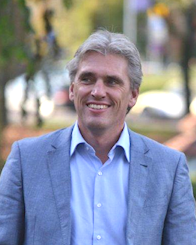
Dr. Peter de Peinder - (website)
Thursday 17th - 16:45-17:30
VibSpec - The Netherlands
Peter de Peinder studied Chemistry at Utrecht University and then became a member of the Vibrational Spectroscopy department as a junior scientist. In 1999 he got a position of a senior scientist at the Material Analysis department of Philips Research and from 2000-2004 a part-time scientist position at Utrecht University. In 2006 he left Philips Research Eindhoven and focused on his activities at VibSpec. In 2009 he obtained his PhD in chemistry on the characterisation of crude oils by a combination of spectroscopy and chemometrics. As a part-time member of the Inorganic Chemistry and Catalysis group of Utrecht University he is involved in in-situ vibrational spectroscopy of homogeneous and heterogeneous catalysts.
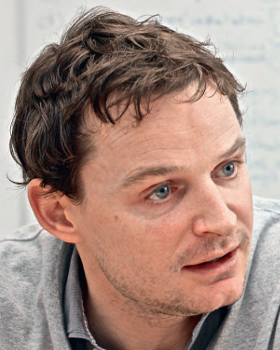
Prof. Lucas Pelkmans - (website)
Thursday 17th - 11:15-12:00
Institute of Molecular Life Sciences, University of Zürich - Switzerland
Prof Pelkmans studied at the University of Utrecht in The Netherlands and obtained his PhD from the ETH Zurich in 2003, after which he got a position as a postdoctoral fellow at the Max Planck Institute of Molecular Cell Biology and Genetics in Dresden, Germany. In 2005 he became assistant professor at the ETH Zurich and in 2010 the full professor at the University of Zurich, where he currently holds the Ernst Hadorn Chair. His lab operates at the forefront of research in quantitative cell biology, in the study of cell-to-cell variability, as well as in systems approaches based on large-scale genetic perturbations and network biology.
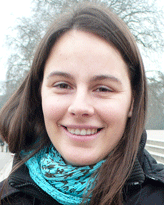
Dr. Leïla Perié - (website)
Friday 18th - 10:00-10:45
Institut Curie - France
Dr. Leila Perie completed her PhD from the Cochin Institute, Paris in 2009. After that, she has worked on cell differentiation at College de France, National Cancer Institute in Amsterdam and Utrecht University. In 2015, she started a young research group at Curie Institute in Paris focussing on deciphering the hematopoietic tree using single cell lineage tracing methods in combination with mathematical modeling, as well as modeling T cell dynamics. Apart from the intensive research in the field of quantitative immunology, Leila is also providing training for scientists and promoting the use of scientific communication as a tool of empowerment.
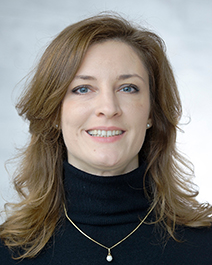
EMBO Young Investigator
Prof. Paola Picotti - (website)
Friday 18th - 16:15-17:00
Department of Biochemistry, ETH Zürich - Switzerland
Prof. Paola Picotti has obtained her PhD from the University of Padova. In 2006, she joined Prof. Ruedi Aebersold’s group at ETH Zurich, where her research received the ETH Latsis Prize 2011. At the beginning of 2011, she started her own research group and was appointed assistant professor at the Institute of Biochemistry at ETH Zurich. Her team focuses on the study of the effects of intracellular protein misfolding and aggregation using novel proteomics approaches. Among her pioneering achievements is the development of a method to analyze protein structural changes in biological samples and on large scale. In 2015 she was selected as an EMBO Young Investigator, while recently she won the 2016 Robert J. Cotter new investigator award for her significant contribution in the field of proteomics.
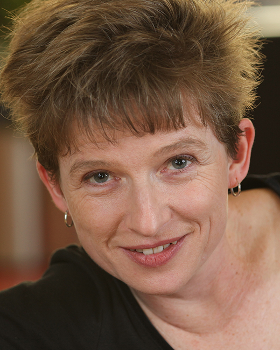
Prof. Leonie Ringrose - (website)
Friday 18th - 11:15-12:00
IRI Life Sciences - Germany
Prof. Leonie Ringrose has been a professor since 2015 at the IRI for Life Sciences, Humboldt University, Berlin. From 2006 to 2014 she was a junior group leader at the Institute of Molecular Biotechnology (IMBA) in Vienna, Austria. In 2014 she visited the John Innes Centre, Norwich UK for a sabbatical in systems biology. Her group works on the epigenetic regulation in Drosophila and mouse development. They combine strategies of quantitative live imaging, mathematical modeling, computational approaches with molecular developmental biology to understand the interaction of the Polycomb and Trithorax proteins with their chromatin targets.
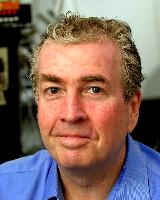
Prof. Timothy Ryan - (website)
Saturday 19th - 15:15-16:00
Weill Cornell Medical College - USA
Prof. Ryan received his Bachelor of Science in Physics at McGill University and his PhD in Physics at Cornell in the laboratory of Watt Webb. After carrying out postdoctoral work at Stanford Medical School he started his own Weill Cornell Medical College, USA where he is currently a Tri-Institutional Professor. The focus of his lab is on the molecular basis of synaptic transmission in mammalian brain. His prime interest lies in understanding the regulation of presynaptic strength. Dr Ryan's group uses biophysical tools to measure physiological parameters at synapses, including exocytosis, endocytosis, action potential waveforms and voltage-triggered calcium fluxes in individual presynaptic boutons. Dr Ryan's team develops state-of-the-art optical methods to obtain a quantitative understanding of presynaptic function and attempts to reduce the complexities of synaptic transmission in a physico-chemical framework.
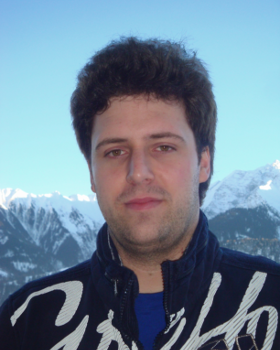
Science & Society
Mr. Jonas Hartmann
Thursday 17th - 13:45-14:30
EMBL Heidelberg - Germany
Following his apprenticeship as a restaurant chef, Jonas Hartmann decided to study cell biology, receiving his master's degree from the University of Zurich in 2014. As a PhD student at EMBL, he is now investigating the interplay of signaling and morphogenesis, developing experimental and computational tools for single-cell perturbation and analysis. However, his fascination with philosophy also has Jonas ask some very different questions, including how the paradigms of modern biology were established, how they shape today's research, and how their limitations might be overcome. He is convinced that an understanding of such questions can help us do good science.
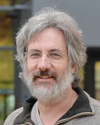
EMBO Science Policy
Mr. Russ Hodge - (website)
Saturday 19th - 13:45-14:30
Russ Hodge is currently working as a science writer at the Max Delbrück Center for Molecular Medicine in Berlin, Germany. His latest book is The Case of the Short-fingered Musketeer, about a 20-year search for the causes of essential hypertension. Previously he ran the Office of Information and Public Affairs at the European Molecular Biology Laboratory in Heidelberg, where he was heavily involved in science education. He was instrumental in writing the grants that established the science teaching magazine 'Science in School', the European Learning Laboratory for the Life Sciences at EMBL, and the international Science on Stage project. His work involves writing stories about science for the general public and more specialized audiences, creating new teaching materials for workshops, helping scientists develop their communication skills, and helping institutes improve their communication, outreach and education activities.
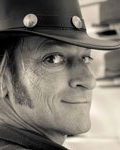
Mr. John Liebler - (website)
Friday 18th - 13:45-14:30
Founder of "Art of the Cell", Director of 3D Animation.
As a former Lead Medical Animator of XVIVO Scientific Animation, John Liebler is best known for his work with Harvard University/Biovisions on the pivotal molecular movie “The Inner Life of the Cell”. He has over 20 years of experience creating scientific images and interactive 3D videos for a wide range of pharmaceutical, biomedical and educational companies. From science animation videos used to explain cell biology to students to scientific method animations clarifying the research of pioneers in the field of biosciences. John’s biomedical animations educate and inspire audiences of all backgrounds and interests across the globe.
 Luis Serrano
Luis Serrano
 Raymond E. Goldstein
Raymond E. Goldstein
 L. Mahadevan
L. Mahadevan
 Jean-Karim Hériché
Jean-Karim Hériché
 Dagmar Iber
Dagmar Iber
 Irene Miguel-Aliaga
Irene Miguel-Aliaga
 Peter de Peinder
Peter de Peinder
 Lucas Pelkmans
Lucas Pelkmans
 Leïla Perié
Leïla Perié
 Paola Picotti
Paola Picotti
 Leonie Ringrose
Leonie Ringrose
 Timothy Ryan
Timothy Ryan
 Jonas Hartmann
Jonas Hartmann
 Russ Hodge
Russ Hodge
 John Liebler
John Liebler
| 08:00-09:00 | Registration |
| 09:00-09:30 | Symposium Opening & Welcome |
| 09:30-10:30 | Keynote lecture: Lakshminarayanan Mahadevan On the growth and form of the gut |
| 10:30-10:45 | Short Talk 1: Svend Dahl-Jensen Deconstructing the formation of the ductal network in the pancreas |
| 10:45-11:15 | Coffee Break |
| 11:15-12:00 | Lecture: Lucas Pelkmans Emergence of predictable patterns of cell-to-cell variability amongst genetically identical mammalian cells |
| 12:00-12:15 | Short Talk 2: Christoph Fritzsch Modulation of transcriptional bursting by estradiol at a single endogenous allele |
| 12:15-13:45 | Lunch |
| 13:45-14:30 | Science and society: Jonas Hartmann Philosophy for science: Can scientists rediscover the philosophy of science for themselves? |
| 14:30-15:15 | Lecture: Jean-Karim Hériché Systems biology of mitosis: a data perspective |
| 15:15-15:45 | Flash talks |
| 15:45-16:45 | Poster Session 1 (Coffee Break) |
| 16:45-17:30 | Lecture: Peter de Peinder Life is great but complex...like quantitative vibrational spectroscopy |
| 17:30-17:45 | Short Talk 3: Klaus Yserentant Towards quantitative 3D fluorescence microscopy with CoPS and array tomography |
| 17:45-18:00 | Short Talk 4: Sarah Noel Galleguillos Quantifying cellular robustness in genome-scale metabolic reconstructions |
| 18:00-18:15 | Thank the speakers |
| 18:15-19:00 | Blackboard Session |
| 19:00-20:00 | Dinner |
| 21:00 | Science Show |
| 09:00-10:00 | The EMBO Keynote lecture: Luis Serrano Transcriptome analysis of a small bacterium reveals non-TF predominant regulation which could be an ancient mode of responding to medium perturbations |
| 10:00-10:45 | Lecture: Leila Perie Deciphering the hematopoietic differentiation pathway at the single cell level |
| 10:45-11:15 | Coffee Break |
| 11:15-12:00 | Lecture: Leonie Ringrose "In vivo biochemistry": Absolute quantification and kinetic modelling applied to Polycomb and Trithorax regulation |
| 12:00-12:15 | Short Talk 1: Lara Urban Prediction of rare regulatory variants using deep learning |
| 12:15-13:45 | Lunch |
| 13:45-14:30 | Science and society: John Liebler OK, But what does it look like? |
| 14:30-14:45 | Short Talk 2: Tadek Krassowski Breaking the genetic code: Multiple reassignments of the codon CUG during yeast evolution |
| 14:45-15:15 | Flash talks |
| 15:15-16:15 | Poster Session 2 (Coffee Break) |
| 16:15-17:00 | Lecture: Paola Piccotti Monitoring protein structural changes on a large scale |
| 17:00-17:15 | Short Talk 3: Andrew Tuckwell An engineering approach to molecular assembly of the type 3 secretion system |
| 17:15-17:30 | Short Talk 4: Éric Durandau Dynamic measurement of kinase activity in live single cell |
| 17:30-18:15 | Blackboard Session |
| 18:15-18:45 | Panel Discussion - Is a PhD thesis obsolete? |
| 18:45-19:00 | Thank the speakers |
| 19:00-20:00 | Dinner |
| 09:00-10:00 | Keynote lecture: Raymond E. Goldstein Upside Down and Inside Out: The biomechanics of cell sheet folding |
| 10:00-10:45 | Lecture: Dagmar Iber From Networks to Function – Computational models of organogenesis |
| 10:45-11:15 | Coffee Break |
| 11:15-12:00 | Lecture: Irene Miguel-Aliaga Homeostatic plasticity |
| 12:00-12:15 | Short Talk 1: Erika Tsingos How tissues coordinate growth in an organ: Insights from modeling clonal lineages in fish |
| 12:15-13:45 | Lunch |
| 13:45-14:30 | Science and society: Russ Hodge How to see a ghost, think like a molecule, and write like a scientist |
| 14:30-14:45 | Short Talk 2: Gabriel Cavalheiro Myc transcription factors regulate mouse lens development and eye organogenesis |
| 14:45-15:15 | Coffee Break |
| 15:15-16:00 | Lecture: Timothy A. Ryan Power supplies for brain cells: the cost of thinking |
| 16:00-16:15 | Short Talk 3: Jason Cosgrove Mapping the distribution of chemokines in lymphoid tissues: Combining super-resolution imaging with multiscale modelling |
| 16:15-16:30 | Short Talk 4: Amit Singh Growth and form in 4th Dimension: Non-invasive, in vivo quantification of growth anatomy and morphology through time |
| 16:30-17:00 | Coffee Break |
| 17:00-17:45 | Blackboard Session |
| 17:45-18:15 | Panel Discussion - Is biology biology or math? |
| 18:15-18:30 | Thank the speakers |
| 18:30-19:00 | Award ceremony |
| 19:00-20:00 | Dinner |
| 21:00 | Closing Party |
Heidelberg is easily reached by train, car or plane from any country in the world. The EMBL campus is located in Heidelberg's neighbourhood area of Boxberg which is approximately 10 minutes by car from Heidelberg's city centre.
Reaching us by train, plane, carIn addition to public transportation we will provide buses from Heidelberg to EMBL. The bus timetable is provided below.
Locations of stops and other points of interest are shown on this map.
On Saturday there is no public bus with a direct connection to EMBL. You will have to use the buses provided by us.
Bus leaving from Heidelberg to EMBL
| Bismarck- platz | Crowne Plaza | Hans- Böckler-Str. | Alois-Link-Platz | Exzellenz Hotel | ISG Hotel | Boxberg- ring | EMBL |
|---|---|---|---|---|---|---|---|
| 07:30 | 07:32 | 07:34 | 07:46 | ||||
| 07:45 | 07:50 | 08:00 | |||||
| 07:50 | 07:52 | 07:54 | 08:06 | ||||
| 08:15 | 08:17 | 08:25 | |||||
| 08:10 | 08:12 | 08:14 | 08:26 | ||||
| 08:30 | 08:32 | 08:34 | 08:46 |
Bus leaving from EMBL to Heidelberg
| EMBL | Boxberg- ring | ISG Hotel | Exzellenz Hotel | Alois-Link-Platz | Hans- Böckler-Str. | Crowne Plaza | Bismarck- platz |
|---|---|---|---|---|---|---|---|
| 19:11 | 19:24 | 19:26 | 19:28 | ||||
| 20:47 | 21:00 | 21:02 | 21:04 | ||||
| 22:00 | 22:05 | 22:10 | |||||
| 22:20 | 22:25 | 22:30 | |||||
| 22:50 | 22:55 | 23:00 | |||||
| 23:10 | 23:15 | 23:20 |
Bus leaving from Heidelberg to EMBL
| Bismarck- platz | Crowne Plaza | Hans- Böckler-Str. | Alois-Link-Platz | Exzellenz Hotel | ISG Hotel | Boxberg- ring | EMBL |
|---|---|---|---|---|---|---|---|
| 08:10 | 08:15 | 08:25 | |||||
| 08:10 | 08:12 | 08:14 | 08:26 | ||||
| 08:35 | 08:37 | 08:45 | |||||
| 08:30 | 08:32 | 08:34 | 08:46 |
Bus leaving from EMBL to Heidelberg
| EMBL | Boxberg- ring | ISG Hotel | Exzellenz Hotel | Alois-Link-Platz | Hans- Böckler-Str. | Crowne Plaza | Bismarck- platz |
|---|---|---|---|---|---|---|---|
| 19:11 | 19:24 | 19:26 | 19:28 | ||||
| 20:30 | 20:35 | 20:40 | |||||
| 20:47 | 21:00 | 21:02 | 21:04 | ||||
| 21:00 | 21:05 | 21:10 |
Bus leaving from Heidelberg to EMBL
| Crowne Plaza | Exzellenz Hotel | ISG Hotel | Boxbergring | EMBL |
|---|---|---|---|---|
| 08:10 | 08:15 | 08:25 | ||
| 08:35 | 08:37 | 08:45 |
Bus leaving from EMBL to Heidelberg
| EMBL | Boxbergring | ISG Hotel | Exzellenz Hotel | Crowne Plaza |
|---|---|---|---|---|
| 20:30 | 20:35 | 20:40 | ||
| 20:50 | 20:55 | 21:00 | ||
| 23:00 | 23:05 | 23:10 | ||
| 23:20 | 23:25 | 23:30 | ||
| 02:00 | 02:05 | 02:10 | ||
| 02:20 | 02:25 | 02:30 |
Prior to travelling to Germany, some applicants from certain countries may have to acquire special travel documents, such as a visa. Applicants are strongly encouraged to check with the local German Authorities (Embassies or Consulates) about the need of special travelling documents. Since the process may be time consuming, applicants are advised to make such arrangements as soon as possible. Failure to obtain a visa after the deadline for participation in the conference will not result in a refund. Applicants are responsible for providing the right documentation needed for their entry into Germany. However, upon request, the Organizing Committee can issue a formal letter of acceptance to the symposium for the purposes of obtaining a visa. Please be aware that no visa letters will be issued before payment of the registration fee. The organizing committee can not be held responsible in the case of a refusal by German authorities to enter German territory.
The registration fee does not include accommodation, which has to be personally arranged. However, we have reserved a few rooms at the EMBL/ISG Hotel. The costs are 77 EUR per person/per night incl. breakfast in a single and 49,50 EUR in a twin or double room. If you are happy to share a twin/double room with a fellow participant, please indicate this when making the booking.
Please call or email the ISG Hotel for your booking and use the code “PhD Symposium 2016” to receive the EMBL special rate.
A shuttle bus will run between EMBL and the ISG Hotel during the conference.
Below you can find a list of travel or support grants:
Please note that you need to apply independently to these grants.
If you require any assistance please do not hesitate to contact the Symposium Organisers.
For any question or urgent matter please contact the PhD Symposium Organisation
| Deadlines | |
|---|---|
| Open until | September 15th |
| Abstract submission deadline: | September 15th |
| Fee | Registration | |
|---|---|---|
| General | €150 | Registration closed |
| Industry | €200 | Registration closed |
| EMBL internal | Registration closed |
Please note:
The EMBL PhD symposium will provide an invaluable networking environment for your company to enhance the profile amongst the molecular biosciences research community, especially towards the young generation. The symposium will offer prime opportunities for your company to promote your new products, latest technology, and services. If you are interested in sponsoring our symposium and would like to have more information, please download our sponsorship brochure or direct your enquires to us.